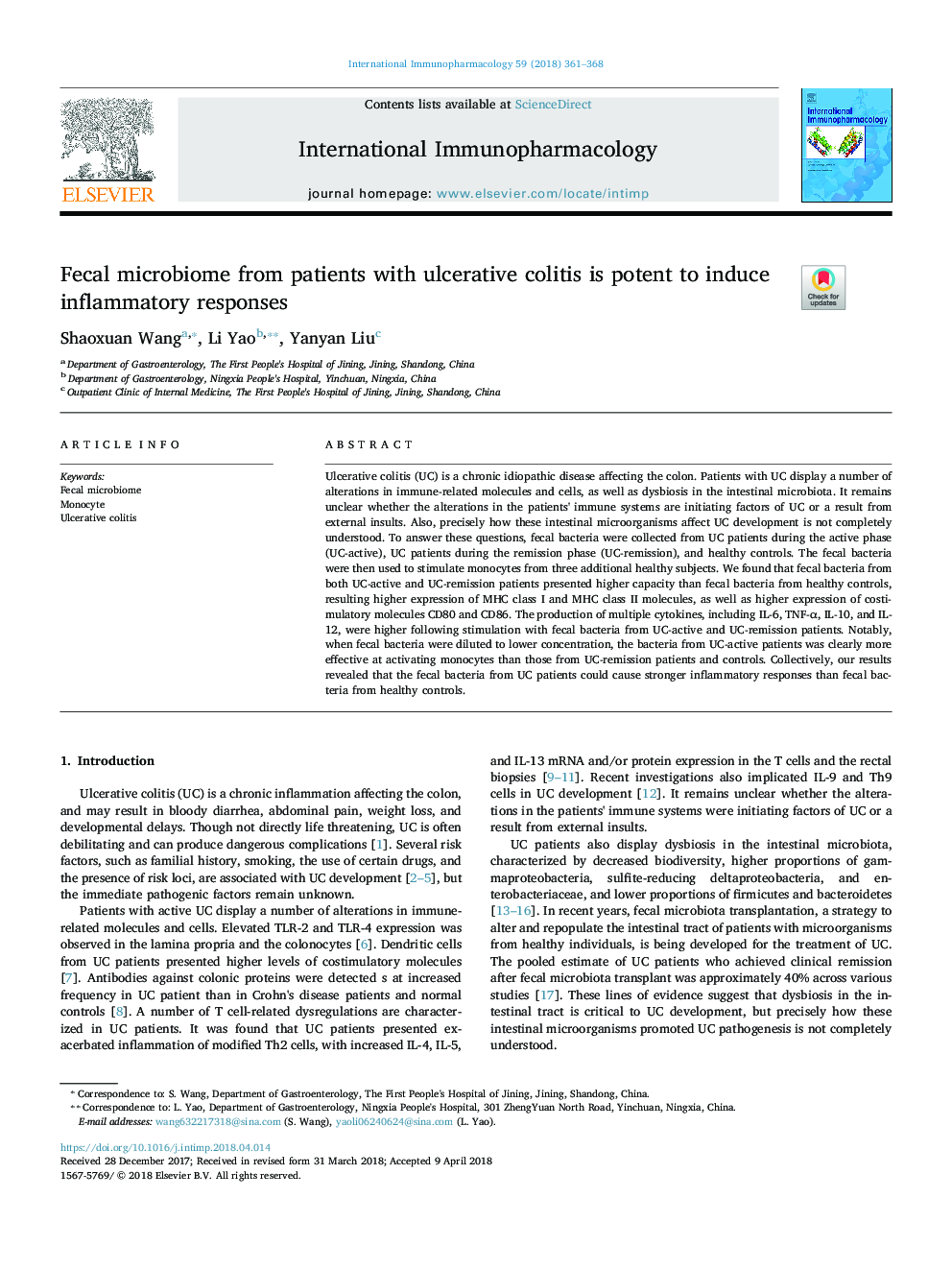| کد مقاله | کد نشریه | سال انتشار | مقاله انگلیسی | نسخه تمام متن |
|---|---|---|---|---|
| 8531235 | 1559731 | 2018 | 8 صفحه PDF | دانلود رایگان |
عنوان انگلیسی مقاله ISI
Fecal microbiome from patients with ulcerative colitis is potent to induce inflammatory responses
ترجمه فارسی عنوان
میکروبیوم مدفوع از بیماران مبتلا به کولیت زخمی توانایی پاسخگویی التهابی را ایجاد می کند
دانلود مقاله + سفارش ترجمه
دانلود مقاله ISI انگلیسی
رایگان برای ایرانیان
کلمات کلیدی
میکروبیوم مدفوع، مونوسیت، کولیت زخم،
موضوعات مرتبط
علوم زیستی و بیوفناوری
ایمنی شناسی و میکروب شناسی
ایمونولوژی
چکیده انگلیسی
Ulcerative colitis (UC) is a chronic idiopathic disease affecting the colon. Patients with UC display a number of alterations in immune-related molecules and cells, as well as dysbiosis in the intestinal microbiota. It remains unclear whether the alterations in the patients' immune systems are initiating factors of UC or a result from external insults. Also, precisely how these intestinal microorganisms affect UC development is not completely understood. To answer these questions, fecal bacteria were collected from UC patients during the active phase (UC-active), UC patients during the remission phase (UC-remission), and healthy controls. The fecal bacteria were then used to stimulate monocytes from three additional healthy subjects. We found that fecal bacteria from both UC-active and UC-remission patients presented higher capacity than fecal bacteria from healthy controls, resulting higher expression of MHC class I and MHC class II molecules, as well as higher expression of costimulatory molecules CD80 and CD86. The production of multiple cytokines, including IL-6, TNF-α, IL-10, and IL-12, were higher following stimulation with fecal bacteria from UC-active and UC-remission patients. Notably, when fecal bacteria were diluted to lower concentration, the bacteria from UC-active patients was clearly more effective at activating monocytes than those from UC-remission patients and controls. Collectively, our results revealed that the fecal bacteria from UC patients could cause stronger inflammatory responses than fecal bacteria from healthy controls.
ناشر
Database: Elsevier - ScienceDirect (ساینس دایرکت)
Journal: International Immunopharmacology - Volume 59, June 2018, Pages 361-368
Journal: International Immunopharmacology - Volume 59, June 2018, Pages 361-368
نویسندگان
Shaoxuan Wang, Li Yao, Yanyan Liu,
